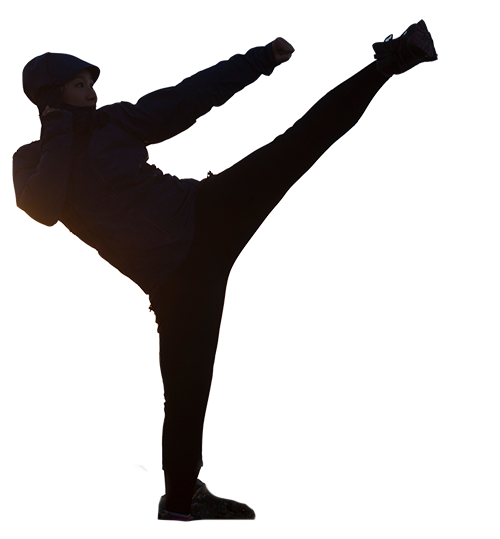What I Have Learned Since Receiving My Black Belt?
Females become confident leaders through Amerikick Martial arts lessons
By Anna Lu
I can recall the moment I received my white belt. By that time I was already obsessed with the idea of receiving my black belt. Later, I achieved my goal received my black belt after six years. Between those two points in time, I have learned many things. However, the time from when I received my junior black belt to now, has allowed me to learn many things on a deeper level than just techniques and proper form.
I have learned important virtues such as humility, respect, and discipline. All of these things I have learned support one of the most important things I will ever learn that not only applies to karate, but also to life.
As a black belt, I have learned about qualities that may not seem very significant, but are actually very important to have. One of them is humility. There is always going to be someone better than me, and I have to accept it. Having humility helps me improve in that instead of focusing on how good I may think I am, I can focus on improving and taking advice from others.
Lessons in Humility: Respect, Open-Mindedness, and Overcoming Self-Doubt
It is important to have an open mind to the idea that one can always learn something from anyone else, no matter what their age is or what their rank is. As someone who is very prideful, I am sometimes condescending and disrespectful. Which brings us to another important virtue. Respect. Respect goes hand-in-hand with humility. It is not only very important in karate, but also crucial in life.
The Golden Rule
Do unto others as you would have them do unto you.
Everyone has been told this at least once in his or her lifetime. I have learned to treat others with kindness, but I still need to work on it sometimes. Something else that I have learned as a black belt is to push myself harder to do better and be better. Most of the time, I can accomplish whatever my goal is, despite facing some difficulties. I’ve found that usually, the hardest thing is to convince myself that I can do something, rather than actually doing it. For example, many people are physically capable of running a five-kilometer race, but mentally, don’t want to do it and tell themselves they can’t. I have learned to tell myself that I can do something, even if it seems hard.
A Journey of Continuous Learning
However, the most significant, paramount thing I’ve learned in my three years as a black belt, is that earning a black belt doesn’t make me perfect. Having a black cloth tied around my waist doesn’t prevent me from making mistakes. The transfer between red belt to black belt doesn’t make me the best person in the world. No matter what I rank, whether I am a teacher or a student; a black belt or a white belt, I will always make mistakes and will always have more space to become better.
What I want to stress in this essay is that no one is ever done improving. I used to think that once I reached my black belt, I would be done learning. That I wouldn’t need to practice anymore, that I could go around bragging about my sleek, fancy, black belt, and be this flawless person. But evidently, that’s not how it works. Receiving a black belt doesn’t mean that I’m done.
Receiving a black belt is simply a new beginning. That explains why it’s called “Shodan” or “初段”, in Japanese, which means “beginning degree”. Everyone should have humility, respect, and discipline and all these other virtues, but to have the mindset that you can always have room to learn more will help you exceed in tremendous amounts.
Receiving my black belt was just receiving another white. When I earn my next belt, I’ll have a new beginning. I will push myself further and I will learn more. And after that, I’ll see that I have so much more to learn.
“Every new beginning comes from some other beginning’s end.” – Lucius Annaeus Seneca

